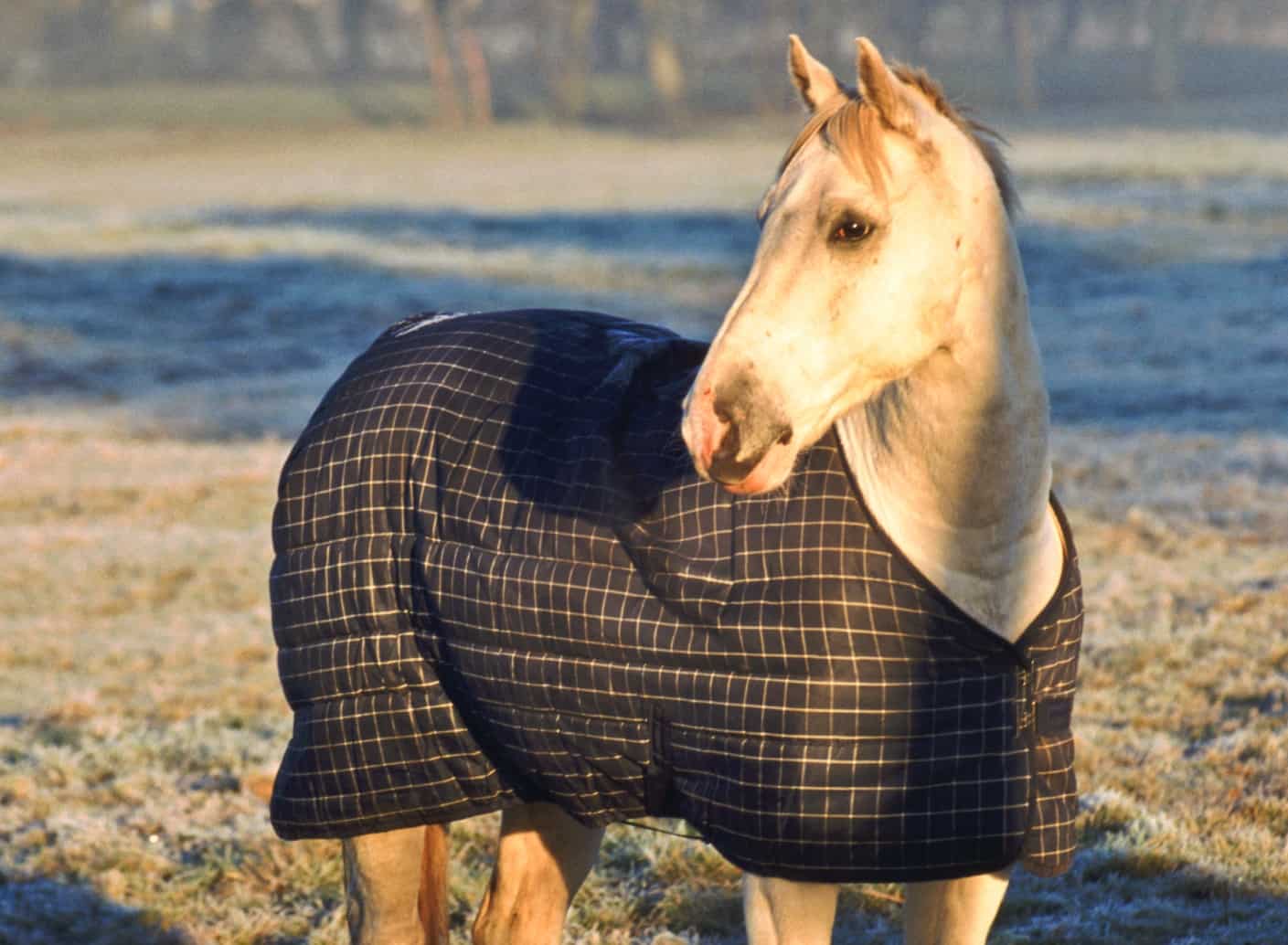Sometimes, in cold weather, your horse may want a blanket to keep warm and comfortable. Horses naturally grow a thick, insulating coat in the months before winter. Due to their thick winter coats, most horses stay warm without blankets, but there are a few typical situations where blanketing is required. These may include:
-
Your horse coat has been clipped.
Removing your horse’s heavy winter coat makes it more susceptible to the cold; therefore, a horse blanket will be needed to provide extra warmth. Winterizing your horse still requires extra attention, even if clipping is a common and safe practice.
Horses are clipped for a variety of reasons. The main causes are as follows:
- Preparing the horses for winter horse exhibitions.
- Reducing sweating during intense winter exercise.
- Removing damage from a coat and encouraging the growth of a robust coat in preparation for the next season.
- Reducing the degree of coat maintenance.
-
If the horse is getting older
As your horse gets older, its ability to regulate its body temperature decreases. They also have a lot more difficulty maintaining their weight and physical state. As horses age, their ability to digest fiber and absorb protein might decrease by 5% and 15%, respectively.
Because they do not get as much energy from their meals, aging horses lose weight and become more vulnerable to the cold. Their ability to stay warm may deteriorate if they lose weight before winter or if they have a medical condition that requires them to use more energy to treat.
You may choose not to blanket your older horse if the winter is mild and they have remained in excellent health. If your horse isn’t covered, check on their weight and overall health regularly.
If your older horse starts to shiver, you should cover them with horse blankets as soon as possible; you don’t have to use a very thick blanket. Medium-weight fleece horse blanket work as well at raising the temperature of a horse’s fur.
-
Your horse spends most of the time in a barn.
Indoor-living horses generally do not get a thick coat. A horse with a short, glossy coat that has spent the entire year in stables feels chilly and anxious when it goes out to graze for the day. To prevent this issue, cover your horse with a horse fly sheets outside in the cold and make sure they stay warm. When they get back to the barn, you should take off their horse pad and blanket to avoid overheating.
-
When the weather is just chilly today.
Sometimes, all you need is a blanket since the weather is chilly. Even if the weather may be milder than typical and your horse has a thick coat, they may occasionally feel cold. Your horse may feel cold for several reasons. They may have sweated, and the cool wind helps them to cool off. They could not feel well or be underweight. If your horse is cold, regardless of the reason, you should cover them with a pony blanket as soon as possible.






